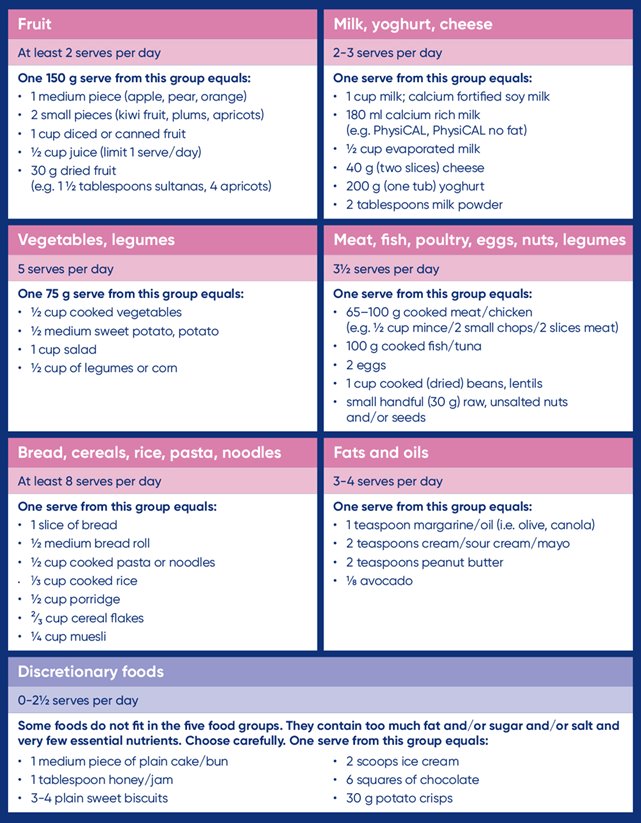The five food groups
Eating a variety of food in pregnancy is important to grow a healthy baby. While you require more nutrients, you do not need much more food (kilojoules/calories). The main pregnancy nutrients that are increased are: protein, folate, iron, zinc, iodine, and fibre. Here’s a quick guide to the best sources and how many you need from each group is in the table below.
-
Protein: lean meat, chicken, seafood, dairy products, legumes, nuts, eggs
-
Folate: fortified bread and breakfast cereal, green leafy vegetables, legumes, seeds, chicken, eggs, oranges
-
Iron: red meat, fortified cereals, egg yolks, green leafy vegetables, legumes, nuts
-
Zinc: meat, eggs, seafood, nuts, tofu, miso, legumes, wheat germ, wholegrain foods
-
Iodine: canned salmon and tuna, other fish, oysters, bread fortified with iodine
-
Calcium: dairy foods, fortified soy and other fortified nut milks, green leafy vegetables, nuts, seeds, canned fish with bones. While your calcium requirements don’t increase, it’s still a very important nutrient.
-
Fibre: wholemeal and wholegrain breads and high fibre cereals, oats, vegetables and fruit with the skin on.

Nutrition for a growing baby and a glowing mum
During pregnancy, the energy or kilojoules you need doesn’t increase too much, but your requirements for many nutrients do change. This is an important time for you to make good food choices. In this video, we take a look at what you should aim to eat from the five food groups each day to help you have the healthiest pregnancy possible.